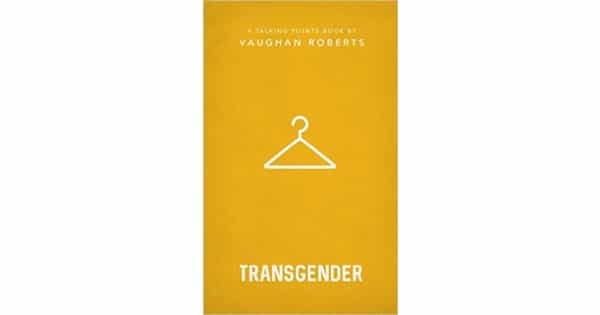Review
It’s always wise to judge a book by what it claims itself to be. In the case of “Transgender”, Vaughan Roberts states that his purpose is not to present a thorough treatment of all the issues surrounding transgenderism, but “rather, our aim is to give you an accessible introduction to the many questions that surround the transgender issue, as we hold our questions up to the big story of the Bible: the story of creation, fall, redemption, and eternity.” In terms of an “accessible introduction” the book succeeds, given it’s only 68 pages long. In terms of conveying the “big story of the Bible: the story of creation, fall, redemption, and eternity,” the book again succeeds, given that 30 pages of the 68 are devoted to this very thing. But in terms of addressing the “many questions that surround the transgender issue,” the book is not as successful.
As you’ve probably already done the math and discovered, almost half of the book is devoted to relating the story of redemptive history through three chapters, “Creation”, “Fall”, and “Rescue.” This is a great summary of the main narrative of the Bible and serves the reader well. However, I don’t feel that it serves the book well. Given the title of the book, one would not expect to find the majority of the book devoted to unpacking the Gospel. To be fair, there are some minor applications of the Gospel made to the topic of transgenderism throughout these three chapters, but they are few and far between, and very shallow when they do occur.
That said, the first two chapters are very helpful, with chapter one being devoted to defining several terms in the transgender discussion and chapter two giving a concise analysis of how subjective individualism has contributed to the transgender movement. The concluding chapter, however, isn’t as helpful and it’s really a shame seeing as how it’s titled “Wisdom.” Roberts attempts to provide biblical guidance for several situations involving trasngendered people, non-transgendered people, and the church, but again, the biblical application is fairly shallow and there’s not much in the way of practical advice.
This book wasn’t expensive and didn’t take much of my time at all to read, but honestly, I don’t feel as though I benefited very much from this book. The definition of terms in the first chapter will be good to have as a reference and the recommended reading for further study in the back will probably prove helpful, but as far as this book is concerned, I don’t feel it fully lives up to it’s stated purpose.
Quotes
“Christians living in Western culture have enjoyed the benefit of being in a world which largely shared our assumptions about what is fundamentally right and wrong. We can no longer assume that this is the case.”
“We need to begin by remembering that we are not simply talking about ‘issues’ here, but people: precious individuals, each created and loved by God. Most of them don’t have a strong political agenda or any desire to fight in a ‘culture war’; they are simply trying to cope with feelings that may well cause them great distress.”
“There are two common responses to this issue: an unquestioning ‘Yuk!’ and an unquestioning ‘Yes!’ In previous years, those who decided to cross-dress in public would have been received by most people with a ‘Yuk!’ response. ‘Yuk, it’s disgusting!’ Not though through–just an emotional response. But now the response of many, especially younger people, would be of unquestioning affirmation. ‘Thats good–it’s great to be yourself!’ Not thought through–just an emotional response. Christians should avoid both these reactions.”
“Maybe you are facing these struggles yourself. I hope that yours is not a lonely battle. I would say that about any of the struggles we face in life. Please don’t let it be a lonely battle and especially don’t let shame keep it a lonely battle. We’re not meant to fight alone. We’re meant to fight within the family of God.”
“If we are Christians, our identity is as men and women in Christ; and our goal, by the Holy Spirit, is to seek to align our desires and our behaviors to our new identity in Christ.”
“But the most important thing that our culture needs to hear is the Gospel of Jesus Christ. They need to hear that the ‘freedom’ offered by individualism is not a freedom at all.”
“As we have seen, the Bible gives a very, very different view. It speaks of a God who made us and loves us–a God who has rescued us and given us a glorious future. It tells us we’re not alone in the universe. We’re not lost. We don’t desperately have to try and discover who we are and fight for who we are–it’s a wonderful given.”
“We are broken physically, broken psychologically, broken in our hearts–but if we have trusted in Christ, God has begun that transformation in us which will continue until completion, when at last we’ll be put back together–body and soul perfectly integrated for the glory of God.”

